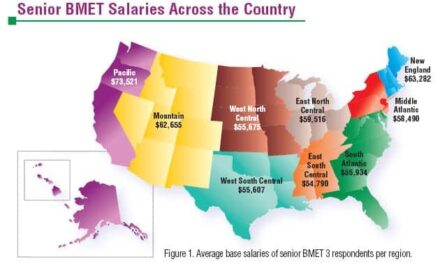 |
Every year, I look forward to the results of our annual Compensation Survey, which are published in this issue. Unfettered by fear of reprisal, many readers write comments that truly reflect their feelings about their employer, job, and the profession as a whole. I was pleased to read that your satisfaction with the industry is higher than last year, but it is still lower than in 2006. What remains unchanged overall is how much each of you actually enjoys the profession. Dissatisfaction lies in the details—such as not enough qualified help or lack of respect—and these details can make or break your gratification with your work, as well as your willingness to encourage others to enter the profession.
In the survey, an overwhelming number of you said your department definitely needs more help. These are tough times for all of us, and we need to remember that tough times don’t last forever, but tough people do get through them. The financial woes our country faces touch each one of us on an individual level and through our work. In these hard times, companies batten down the hatches and hope you will make it work with what you have, rather than fill open positions or address department needs by hiring help.
In his book, New Product Blueprinting, author Dan Adams offers some survival strategies for flourishing in a “miserable economy.” Although geared to B2B companies, one suggestion is an idea we can all benefit from: Harvest the best practices of other companies. Adams says that simply by learning what works for other organizations, you can immediately increase your effectiveness.
“Have you ever left a company to work for another and discovered the new outfit had some pockets of mediocrity?” he asks. He then suggests that newer employees may be having the same experience and instead of waiting for them to randomly share any improved practices, employers should “find, adapt, and drive these best practices into your business fast.”
Another way to learn of other best practices is to take a look at our new Best Practices blog on our Web site. You’ll find tips that can help you save time—and some headaches—leaving you more opportunities to attend to other important matters, which may alleviate some of your stress. Our cover stories also offer tips on departmental strategies that can help you streamline your work. All of our past issues and articles are available in our archives on our Web site.
As we head toward the end of the year, I would like to thank those of you who support our magazine by reading it, writing for it, and advertising in it. In addition, I would like to thank my team for all of their hard work in putting 24×7 together each month—Mark, Mike, Stephen, Oliver, Debbie, and other support staff. All of our tough times may not be over yet, but let’s press on and keep looking for that light at the end of the tunnel.
Julie Kirst





